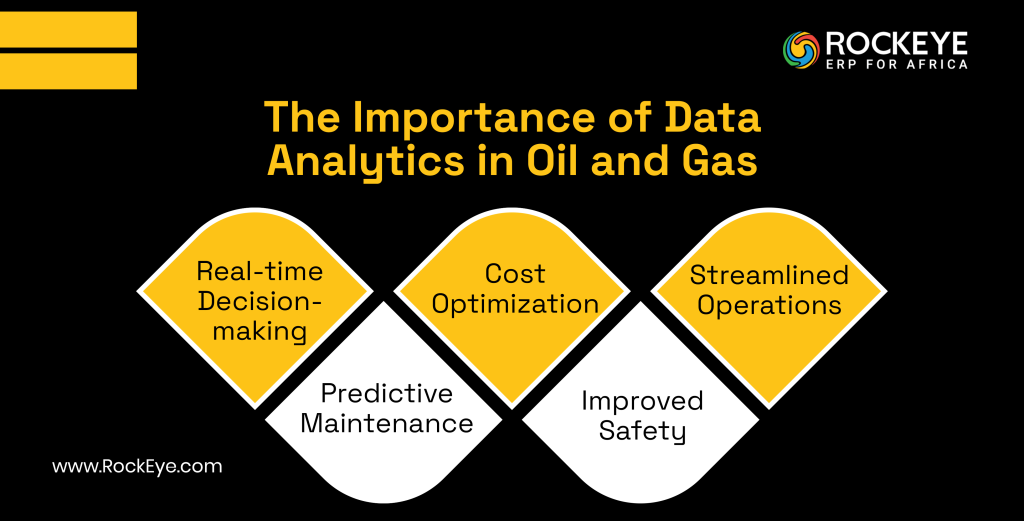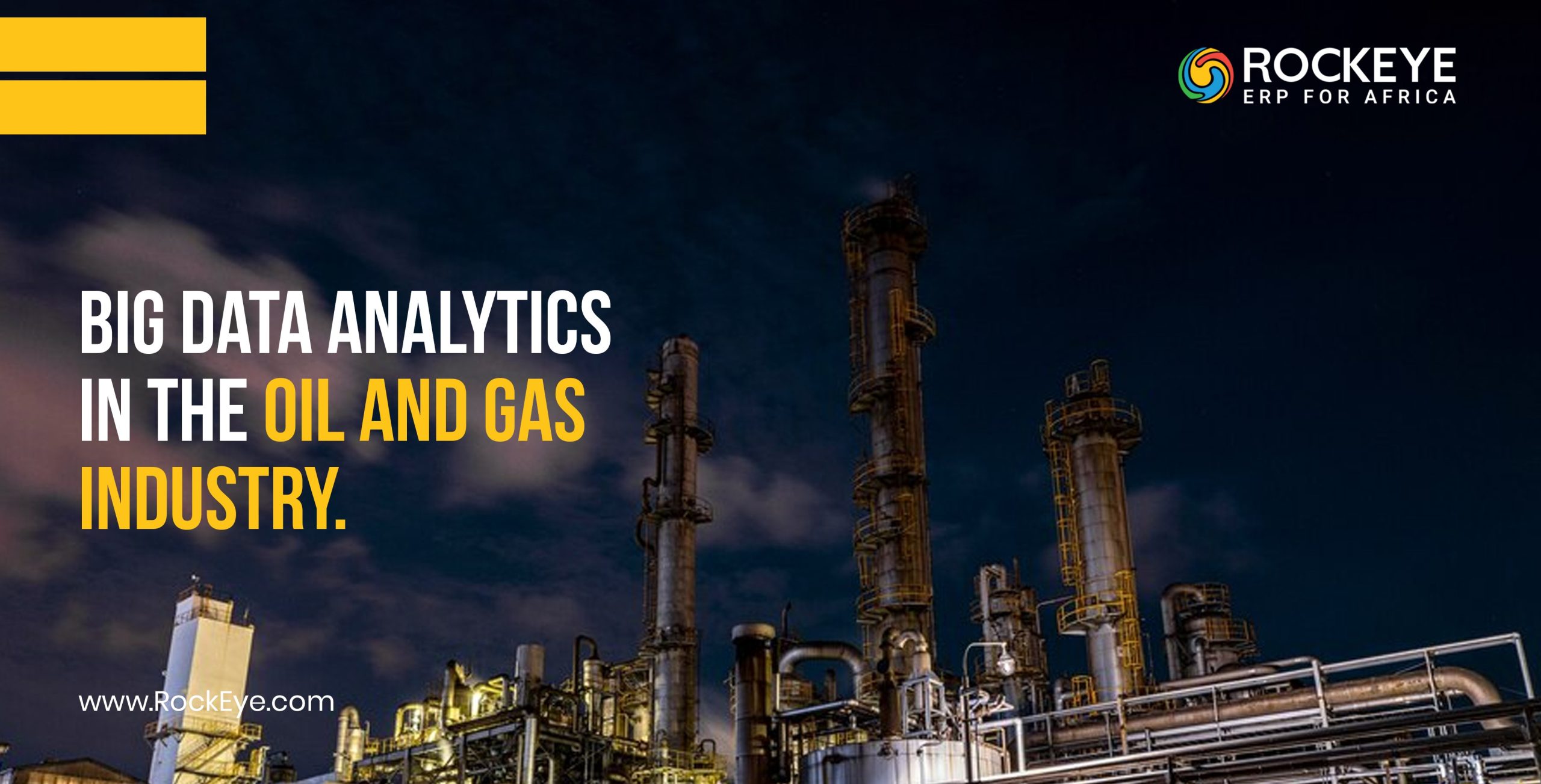Why Data Analytics Matters in the Oil and Gas Industry
The role of decision-making in the management of every business is one that is unparalleled, and one of the most effective ways to engage in decision-making is through data analytics. Data analytics is the process of collecting, transforming, and interpreting raw data to make conclusions about information. It is often applied to handle large datasets and draw out meaningful, actionable, and reliable insights for business growth.
Many businesses are embracing data analysis today. This is owing to the fact that as the business world evolves with new trends in technology, market demands and pressure from competitors, small and large-scale business owners need strategic planning and well-informed decision-making to weigh available options, consider the best solutions, plunge into action, take advantage of new opportunities, and achieve sustainable results.
The oil and gas industry has become a massive data-intensive industry due to the advent of data recording sensors applicable in getting seismic data for the exploration of oil, drilling, as well as the production of petroleum products.
In this article, we’ll explore, in detail, the reasons data analysis matters in the oil and gas industry and why its importance cannot be over-emphasized.
A Brief History of Data Analytics
We can trace the history of data analytics to ancient Egypt where statistics was used for building pyramids and generating censuses. In other words, data analytics is rooted in statistics and mathematics.
According to Atlan, the construction of the Great Pyramid of Giza in Egypt of Northern Africa took over 20 years to complete, because it was a project that eventually became successful even without the use of modern technology.
With over 2 million gigantic stones that weighed about 90 tons each, each stone was transported across a sandy desert every 5 minutes. Through the data collected from the scribes in the form of the Egyptian papyrus (an ancient writing tablet), the archaeologists could decipher the right amount of blocks required, the precise angles, the water-to-sand ratio, the geometry of the overall structure, etc.
What does data analytics look like in today’s world?
The Overview of Data Analytics in Today’s World
The evolution of data analytics has come a long way, and it is one that cannot be underestimated. From humble beginnings of tally sticks, papyri, Business Intelligence (BI), and now Artificial Intelligence (AI), the business world has experienced a turnaround in its data analysis processes.
The era where people used tally sticks to calculate quantities and document numbers gradually metamorphosed into an era where people now rely on digital innovations to solve basic problems and provide more reliable data for decision-making.
As the world grew digital and more sophisticated technology tools emerged, businesses also needed to maintain a personalized relationship with their customers and maintain a leading presence amongst their competitors.
In the early 21st century, with the rise of business intelligence, businesses relied on data analytics software like Microsoft Excel spreadsheets to perform basic data-driven operations. However, spreadsheets are only limited to essential data tasks, thereby lacking the ability to perform advanced data analytics tasks.
The quest for finding a more advanced data analytics tool led to the invention of other business intelligence databases like Tableau and Power BI (big data analytics). Today, we have a transformative disruption of Artificial Intelligence (AI) in data analytics.
In this era, digital tools are not just processing data but also learning from it to make improved predictions, as well as continuously learning even without any form of programming. This intelligence is made possible through a branch of AI known as machine learning.
Why Data Analytics Matters in the Oil and Gas Industries
With the demand for energy, the oil and gas industry remains one of the most important industries that has contributed immensely to the growth of every society. Hence, the amount of data required from the oil and gas sector must be useful, detailed, reliable, and accurate.
As the supply and demand of the oil and gas industry fluctuates over time, the industry looks for new ways to outsource bigger data that enables it to identify and mitigate risks, comply with government policies, increase productivity and gain relevance in a competitive market. As a result, the industry has embraced the importance of creating value from data.
According to recent research by Dataroid, it was found that about 36% of oil and gas companies now invest in big data and analytics. Data analysis can help businesses devise efficient and effective strategies to reduce the risks associated with the exploration and drilling of oil. In addition, insights from data analysis can help oil and gas businesses to target the right market.
Whether you are running a downstream or upstream oil and gas enterprise, there are some major types of data analytics you should be aware of:
Descriptive analytics
This analytics focuses on the algorithm over time and what has happened in the past. It answers questions like ‘What is the past and current situation of sales?’
Diagnostic analytics
This involves the process of finding the sole reason something happened or didn’t happen in the past. It does this by providing solutions to a question like ‘Was government policies responsible for the last fluctuation in oil prices?’
Prescriptive analytics
Once the problem has been identified, prescriptive analytics suggest the next cause of action. For example, if the diagnosis from the last data says that government policies were responsible for fluctuation in prices, the next action could be either to hold on with sales or proceed.
Predictive analytics
This dwells more on future trends and how they could impact or affect the industry. Take for instance, if the fluctuation in price becomes a recurring problem for the oil and gas industry, what could be the worst-case scenario if a sustainable compromise is not reached before the next few years?
Knowing these different types of analytics helps you figure out when you need to utilise one over the other and what to pay attention to while analysing data for your business. Simply put, the kind of insights you get from your data depends on the type of analysis performed.
Regardless of the type of analysis you perform per time, here are a few benefits that your oil and gas business stands to gain from data analysis.

Real-time Decision-making
With data analytics, businesses are provided with a more accurate picture of their operations, customers’ behaviour, and market trends, all of which are essential parameters for making informed decisions.
Should you stop releasing a product into the market? Is your customer base reducing steadily? What industry trends are competitors leveraging at the moment? These are a few questions that performing in-depth analysis of data helps you to find the right answers to. And with the right answers comes a clearer picture of what strategy to imbibe to address the situation so discovered.
Predictive Maintenance
In the downstream operations of oil and gas companies, simulations can be developed to predict maintenance incidences. For instance, when the performance of a gas compressor is analysed by evaluating its present and historical data, all the information can be out in a database to make more informed maintenance decisions.
In the upstream operations which focus on the drilling of oil, data analysis can likewise be used to ensure that machines are working properly and not damaged due to breakdowns. Oil drilling machines can be fitted with sensors that collect data about the machine’s performance, which can then be compared with aggregated data from the past to ensure parts are replaced when needed.
Cost Optimisation
Due to the nature of the industry, oil companies are wont to produce a high volume of data on a daily basis which can be a very expensive process and can affect the financial performance of a company. However, with the use of data analytics, oil companies can capture large volumes of data in real time and increase production, thereby reducing costs.
The role of big data in the oil and gas industry goes beyond analysing large volumes of data in real time. By using scalable computing technologies to determine optimum cost, oil companies are able to leverage data analysis tools to cut costs significantly and still stay on top of trends in the industry.
Improved Safety
The oil and gas sector is known for using big machines for operations and the unintentional exposure of workers to environmental hazards. With the early detection of well problems such as gas breakthroughs and slugging before they become serious, data analytics can help to prevent risks and improve the overall safety of oil plants, production workers, and everyone involved in the operations of the company.
Streamlined Operations
By analysing predictive maintenance, oil companies can use data analytics to forecast various parameters from production at thousands of wells to energy demand, price fluctuations, and market trends. The insights obtained from such analysis can help to make informed decisions on production, supply chain management, logistics, and investment strategies.
How to Get Tailor-Made Data Analytics Tools for Your Oil and Gas Business
Given the importance of data analytics in improving the operational efficiency of oil and gas companies, many businesses now offer oil and gas software development services to help oil companies have access to all the technological tools they need for operational efficiency.
RockEye is one such household name that caters specifically to the needs of African downstream oil and gas companies. We have built an efficient ERP suite with data analytics tools that help you enhance your operational efficiency.
Our ERP is custom-built and offers stand-out features, including real-time data insights, built-in intelligence, native RPA, smart integrations, white labelling, and information flow, among others. Within this suite are all-encompassing smart solutions geared at transforming your oil and gas business.
Get all the downstream solutions you need in a centralised system, and access to data analytics tools to transcend the demands of the oil and gas industry.
Visit our website today: https://www.rockeye.africa/


